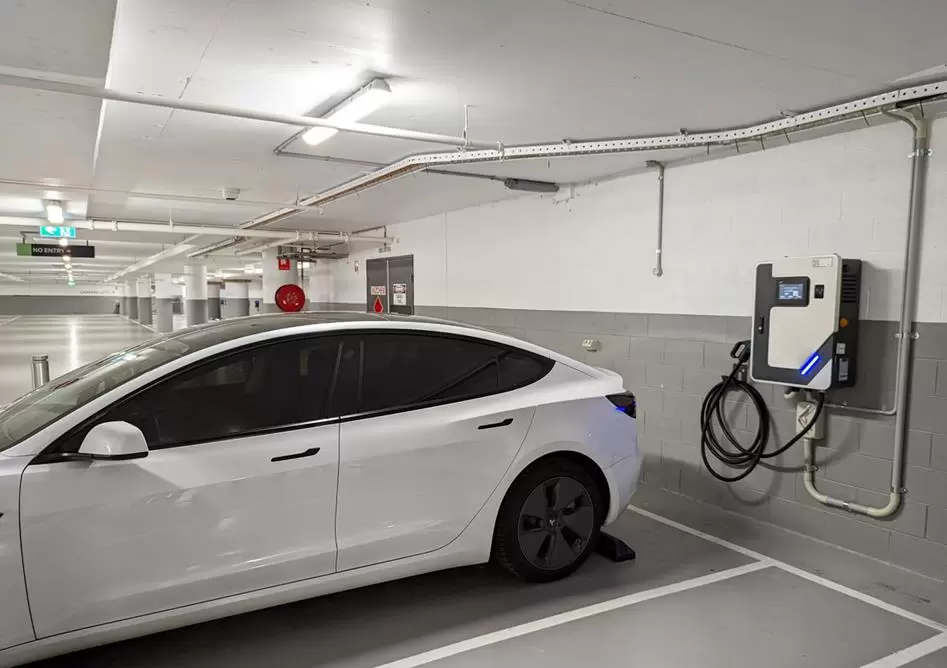7 Tips for Maximising Your DC Charging Investment

7 Tips for Maximising Your DC Charging Investment
When deciding to invest in a DC charging solution it is important to consider the following factors.
1. Know the target user’s profile
Understanding who visits the charging location, how long a visitor stays and the EVs they drive is imperative to deciding whether DC charging is the right option for you.
For example, if you own a restaurant, a visitor will typically spend a couple of hours at that location. Meaning investment in primarily AC charging stations with a couple of DC fast-chargers for those who want to charge more quickly, could be the best option.
Whereas, a roadside petrol station may want to invest in mainly DC charging stations, as patrons will only want to spend minutes at those locations.
To put it simply, place yourself in the shoes of the driver. Understanding the customer’s needs and creating a strategy based on location, time spent at that location and overall EV traffic will set up your EV charging station solution for success.
This tip applies to fleets and public charging alike.
2. Understand the requirements of the charging location
Installing a DC charging station will leave a tangible footprint in the surrounding environment. They come in many different shapes and sizes. Therefore, it is important to determine all the specifications and requirements for each charging station. These chargers operate at high power outputs so a modular solution is ideal. Furthermore, it is important to consider your power availability as DC chargers are extremely power-hungry, with a 120kW charger requiring more than 200A of power.
It is also crucial to consider all potential stakeholders who may be impacted by the charging station.
3. Choose the correct station architecture and power output
DC chargers come in many shapes, sizes and power outputs. The Ocular series ranges from 40kW to 150kW which gives EVs around 240km range per hour of charging to 900km range per hour of charging respectively.
Additionally, you will want to ensure that your charging stations have a scalable setup, where you can easily add more chargers without the need to change much of the original installation. EV Management software such as Exploren is also beneficial for fleets and public stations to give reports on charging station usage, costs and also for interconnectivity between modules.
4. Consider Implementing smart charging
Having smart charging enables EVs, the electrical grid and charging stations to communicate intelligently to one another while covering specific needs or preferences set. Take into consideration the smart charging features that the chosen hardware can support.
One of the most useful smart charging features is load management which controls how much energy is diverted to the chargers accordingly to not exceed the maximum available power thus preventing a system collapse whether it is just allocating a fixed amount of power to the group of chargers or dynamically setting limits accordingly to the current energy usage of the premises, it also can schedule charges in relation to avoid costly peak demands.
5. Decide how charging sessions authorised
This is important depending on the end use of the EV charging station especially for business, for fleet charging for instance it can go from:
- Simply plug the EV and the charging session automatically starts.
- Using RFID tokens for authorization like cards or keyfobs.
Also if the charging service is offered to customers you might want to study different options to provide as much flexibility to the customer to pay, commonly the options are:
- The use of an RFID token initiates the charge from an app.
- Use of a QR code to initiate charging from an app-based payment system
- Using a credit card reader to charge the customer directly.
6. Effectively manage the charging network
Charging Management Software or CMS helps in keeping the network up to date, running and accessible to any EV driver.
This also enables the charging station operator to create a list or authorise specific users to use the charger whether is a staff member, customer or simply an authorised individual, you can also have limits in place for each charging station to individual drivers depending on which classification the user falls.
A properly selected CMS will allow you to maximise any revenue obtained by billing, as you can set different tariffs that will depend on variables such as the time of the day when the charge is requested and also set certain charging limits, especially during peak demand.
7. Effectively maintain the charging network
DC charging while being extremely useful for a number of customers is also complex and requires maintenance by certified professionals. In order to maximise the uptime and reduce any possible downtimes, you need to properly plan the servicing and maintenance.
Understanding whether your EV charging partner provides maintenance services and care packages is essential in order to tackle any possible issues before they arise or as soon they arise reducing any downtime as much as possible.
Also, it is important that if the fast charging stations network is going to grow, the planning maintenance keeps any downtime to a minimum and the chargers are always ready to go. In any unforeseen circumstances, it’s convenient to have a partner that can quickly respond and is willing to go the extra mile.
Have any questions? Contact us:
Phone: 0800 990 032
Email: sales@evse.nz


